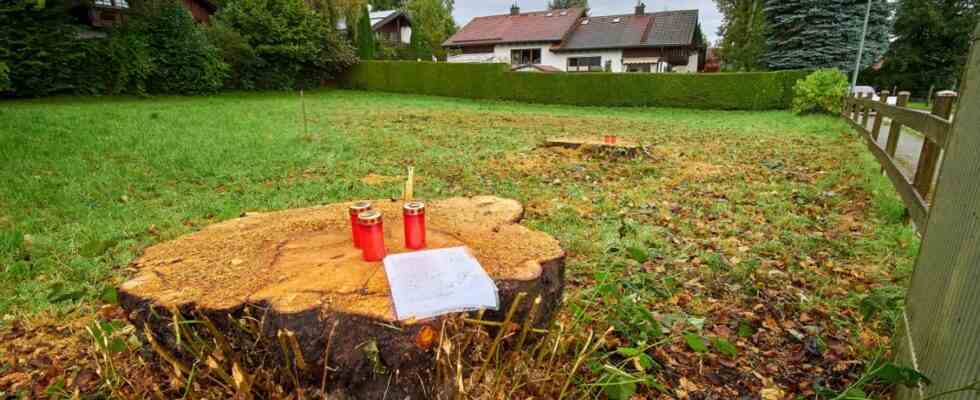It’s been 17 years since the Markt Schwaben municipal council decided to convert its tree protection ordinance into waste paper. Since 2005, the people of Markt Schwaben have been allowed to cut down trees themselves that were growing on their property and were in their way for one reason or another. This sometimes led to dissatisfaction with nature conservation associations, as almost a year ago when two more than 100-year-old linden trees were felled in the community.
Now the world has changed in these 17 years: Angela Merkel is no longer Chancellor; Justin Bieber just a footnote in music history; and the issues of environmental protection and nature conservation have become important political goals due to the climate crisis, record summer heat and floods. Against this background, the municipal council of Markt Schwaben has now decided that it is time to create a new tree protection ordinance.
The ordinance applies from a trunk thickness of 80 centimeters
The parliamentary groups of the SPD, Greens and Future Market Swabia had submitted the application. The ordinance is intended, among other things, to “achieve appropriate inner-city greening”, “to promote and secure the efficiency of the natural balance” and “to promote the climate and air pollution control function”. Trees not only convert CO2 into oxygen, but also make an important contribution to keeping urban areas cool in summer.
In order to ensure these important functions, the community’s trees with a trunk circumference of more than 80 centimeters were placed under protection. The cutting – and of course felling – of trees, the sealing of the root area or the application of herbicides are now also prohibited for trees on private property. Violations can result in fines of up to 50,000 euros. In addition, owners and authorized users are obliged to maintain and care for trees on their property.
Exceptions, such as when the tree is sick, are of course possible. However, the regulation is particularly relevant for future builders. If a tree that is actually protected under the new regulations is to be removed, this must be reported to the municipality.
Despite different points of view, the ordinance was agreed across factions
If the tree is felled, the market can demand that a replacement be planted in the future. Depending on the thickness of the original trunk, a tree with a circumference of 18 to 30 centimeters must be planted, if possible on the property where the previous tree stood. If it is not possible to plant a new tree, the municipality can instead demand a compensation payment of 1000 euros for small-crowned trees or 1300 euros for large-crowned trees. The money is then earmarked for the planting, maintenance and care of community-owned trees.
The resolution of the new regulation was not entirely uncontroversial. The parliamentary groups of the CSU/FDP and the Free Voters sensed that the new ordinance would dictate to the citizens. They are “basically of the opinion that no protection is necessary and that the citizens’ sense of responsibility can be trusted,” according to a statement.
Raphael Brandes (Greens) disagrees with the accusation of patronage: “This is a social approach because the trees fulfill important functions for the whole community.” That’s why he prefers to speak of a guide, especially for builders, instead of a regulation. Every citizen has the right to develop their property. “But doesn’t the law also state that property is an obligation?” Brandes points out.
The factions finally found a compromise as far as the particularly controversial minimum thickness of the tree trunk is concerned: instead of the originally proposed 60 centimetres, they agreed on 80 centimetres. This compromise creates a “good basis for permanently pacifying the issue objectively and emotionally,” according to the CSU and Free Voters. Raphael Brandes takes a similar view. He thinks it’s particularly nice that the Tree Protection Ordinance was passed across factions. Mayor Michael Stolze (independent) sees a “workable compromise” here that all council members could live with. And the trees will probably be happy about the new regulation.

